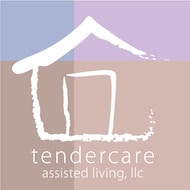Possible Signs Your Loved One May Need to Move to an Assisted Living Residence

October 2017
From mysterious bruises to a stack of unpaid bills, the signs your loved one may need move to an assisted living residence are often subtle.
Health care workers use a set of standard tasks and skills to evaluate if a person needs assisted living or nursing care. Theses tasks are divided into basic self-care skills, known as activities of daily living, and more complicated financial and household management tasks, called instrumental activities of daily living.1

An activity of daily living can include something as simple as eating or drinking.
Basic Self-Care
It may be time to consider assisted living if you’ve noticed a change in your loved ones ability to care for themselves.These tasks include:
- Going to the bathroom.
- Bathing and grooming.
- Dressing.
- Eating.
- Walking.
If you think your loved one is backsliding in these areas, ask yourself:
- Are they steady when they walk?
- Can they easily transition between sitting and standing?
- Do they dress in clean, seasonally-appropriate clothes?
- Are they well-groomed?
- Do they show signs of good personal hygiene?
Answering no to any of the questions could mean your loved one needs help with self-care. Assisted living facilities are staffed to support residents with these tasks. The Federal Interagency Forum on Aging reports more than 63 percent of Medicare beneficiaries living in assisted living need help with one or more of activities of daily living.2
Lack of sufficient self-care can present itself in many different ways. It’s always a good idea to seek a professional opinion if you’re unsure.

Life skills include remembering to take medication, remembering how to drive and managing daily tasks.
Life Skills
Even if your loved one if self-sufficient with their basic self care, they may need help with other basic life skills such as:
- Driving.
- Shopping.
- Taking medication.
- Housekeeping.
- Managing money and bills.
Signs your loved one may be struggling with these skills include:
- Stacks of unpaid bills or late payment notices.
- Noticeable changes in the cleanliness of their house.
- Trouble remembering if they’ve taken their medication.
Assisted living could help by providing prepared meals, housekeeping services, and medication administration.
Is Assisted Living a Good Fit?
Assisted Living facilities provide a custom level of care for residents. You, your loved one and the assisted living staff will develop a plan to meet your loved one’s needs while allowing them to maintain their dignity and independence. Some residents may only need help with their medicine and prepared meals, while others may need help with more self-care tasks.
For more information about assessing your loved one’s situation, review this assessment checklist from AARP or this questionnaire from the Public Broadcasting Service special “Caring for Your Parents.”
If you’re in the Denver metro area: Don’t hesitate to contact us to talk about if assisted living is right for your loved one.
